- Home
- Todd Strasser
Wish You Were Dead Page 6
Wish You Were Dead Read online
Page 6
“Then she could have snapped. She could have run away or … I mean, we really don’t know what she’d do.”
“You really believe that, Mads?”
“I’m just saying it’s possible. No one can absolutely know.”
Adam turned toward his computer screen. “I can’t say for certain that she isn’t capable of doing something to herself. But I’m pretty sure she wouldn’t do it because of me.” He paused and moved the cursor. “You know, I wasn’t really her boyfriend, Mads. I was just another trophy. Another achievement in the personal résumé she kept in her head. Sometimes I think she had to have me mostly because she couldn’t deal with the idea of me being anyone else’s boyfriend.”
I knew Lucy well enough to know that could have been true. “On TV this morning Dr. Cunningham sounded like he thought she’d been kidnapped.”
Adam winced. “Maybe because it’s better than the alternative, you know? It’s been what? Four days? Four days without her medications? Without any money? Four days and no one’s seen any sign of her? You really have to hope she’s with someone somewhere, because if she isn’t …” Adam didn’t finish the sentence. He just shook his head.
“But who could she be with?” I asked.
Adam didn’t answer. He didn’t have to.
On my way home, I pulled up to the gate at the entrance to Premium Point and waved inside to the guard. He raised a finger, as if motioning me to wait, then slid the window open and held something out. “Someone left this for you.”
It was a plain white paper napkin, folded over until it was the size of a Post-it. Madison Archer was written on it in thick, smudged pencil. I unfolded it.
You and your friends are in danger
I can tell you more, but first I
have to know that I can trust you.
My whole body grew tense and my stomach started to knot. “Where did you get this?”
“It was wedged into the doorframe when I came on duty.” The guard narrowed one eye quizzically. “You okay, Miss Archer?”
“Yes, thank you.”
Back in my room I read it again. First I have to know that I can trust you. What did that mean? That I wasn’t to tell the police? But how would the writer know if I did or didn’t? How did I even know if this was real and not some kind of a joke?
I was pondering these questions when the garage door opened. Mom was home.
Half an hour later, Detective Payne of the Soundview Police Department was sitting at our kitchen table, sipping a cup of coffee. The detective was a thin man with a blond moustache. The note lay open on the kitchen table.
“Do you think it’s real?” Mom asked.
Detective Payne made a gesture with his hands to show he didn’t know. “It’s like anything else these days. We have to treat it as legitimate until we know otherwise.” He turned to me. “Why do you think this note came to you, Madison?”
I shook my head. “I don’t have a clue.”
“Can you think of anyone who might want to play with your head?” the detective asked.
PBleeker, I thought. “There might be one person. I’m not sure. I get anonymous messages.”
Mom wrinkled her forehead. “How long has this been going on?”
“About a year.”
“Why didn’t you tell us?”
“Because I never really felt threatened. It’s more like someone who, well, maybe has a crush on me and is afraid of being rejected.”
“If it’s online, can you trace it?” Mom asked the detective.
“Depends,” Detective Payne answered. “I’ll take the information, but some people are better at hiding their real identities than others. And frankly, I have my doubts. Why would someone who’s been comfortable communicating on the Internet suddenly decide to leave a handwritten note?”
Mom gestured at the napkin. “What about fingerprints?”
“Not from paper like this,” Detective Payne said.
“I don’t understand how this person would expect me to show that I can be trusted,” I said.
Again, Detective Payne gestured with his hands as if he didn’t know, either.
“What should Madison do?” Mom asked.
Detective Payne turned to me. “There’s nothing you can do, Madison. Go about your business as usual. Just, you know, be careful. Stay alert.” He took one last sip of coffee and reached for the note. “Okay if I take this?”
I nodded. He stood up, folding the napkin and sliding it into his pocket. “It would probably be a good idea if you didn’t mention this to anyone, okay?”
“Is there anything new about Lucy?” I asked
The detective hesitated. “We’re following several leads.”
Mom accompanied him to the front door. She probably had some questions she wanted to ask him. I glanced out the window, where the sun had broken through the gray clouds and light glinted off the Sound. Only a week ago I’d sat in this kitchen not even questioning whether or not I felt safe. After all, this was Soundview. Not only Soundview, but the gated community of Premium Point. But so much had happened since then—Lucy’s disappearance, that awful feeling that someone had been following me in the dark boatyard, and now, this note.
Who could have left it?
The face that unexpectedly appeared in my thoughts was Tyler’s.
He knew where I lived.
Rich bitch.
Things like this happen for a reason.
Another voice was in my mind. Dr. Cunningham’s: Did you happen to see anyone else around when you dropped her off?
I’d said no but now I realized that wasn’t true. There had been someone else around. Tyler.
Hushed voices drifted down the hall. Mom and Detective Payne were speaking. Then the front door closed and Mom returned. She sat down at the table and took a sip of coffee.
“What did he say?” I asked.
“He thinks someone may be playing with your head,” Mom said. “In times of stress, certain, er … not well people … sometimes do things like this.”
“What about Lucy?”
Mom traced the rim of the mug with her finger. “They’re stumped. They’ve brought in dogs and searched everywhere. They’ve sent alerts to all the neighboring towns. No one’s seen her. Her phone hasn’t been used since last Saturday. It’s as if she just vanished into thin air.”
“But he just said they’ve been following leads.”
“I think sometimes the police have to say that,” Mom said. “Just to reassure the public. But Detective Payne just told me that in his thirty years in the police department, he’s never seen a case like this.”
Even though the house was well heated, I shivered and hugged myself. “It’s scary.”
“Yes,” Mom agreed. “It is.”
During the normal IMing and texting that night, I didn’t tell anyone about the note. Courtney was online, and I was tempted to try and smooth things over with her, but for once I resisted. Why did I always have to be the one who tried to make things better? Why couldn’t she reach out to me?
chapter 10
Thursday 1:14 P.M.
“WHAT DID YOU just say?” Mr. Osmond asked Tyler in current events the next day, the fifth that we would live through without knowing what had happened to Lucy. I’d driven to school that morning wondering how Courtney would get there. Now she sat across the room from me, and neither of us looked in the other’s direction.
Mr. Osmond was a new, young teacher with all that enthusiastic “I’ve got to do more than just follow curriculum” energy that usually lasted no more than the first three or four years.
“I said that some people deserve to die.”
The class had gone silent. Everyone knew that this was just the sort of statement that Mr. Osmond loved to pounce on—a seed that he would now water with probing curiosity in the hope that it would blossom into debate. “Deserve to die,” he repeated. “So, Tyler, am I to understand that you are in favor of the death penalty, even in cases where the guilty person has not com
mitted murder? In your opinion, these people still deserve to die?”
“Absolutely,” Tyler replied.
“According to whom?”
“According to what they’ve done,” said Tyler.
Mr. Osmond looked around. “Does anyone agree? Disagree? We’re not talking about murder here. The question is, does anyone really deserve to die for committing a lesser crime?”
“Rapists, child abusers, and pedophiles,” said Reilly Bloom.
“Damn right they deserve to die,” said Jake, and exchanged a high five with Greg Stuart. While he liked to sit with his jock friends in the back of the room, Adam, as a rule, maintained a somber demeanor in class and refrained from the typical dumb-jock hijinks.
“How would you feel if someone decided you deserved to die?” Mr. Osmond asked. “Who’s to say what constitutes a behavior or crime deserving of the death penalty?”
The class went quiet. Mr. Osmond scanned the room for someone willing to answer. There were certain people he could count on to give an opinion. I was one of them, but today I averted my eyes, hoping he wouldn’t call on me.
“Madison?” said Mr. Osmond, as if he could feel my reluctance.
I sighed and gave the answer I’d prepared in my head in case I was called. “I’m not sure I believe anyone has the right to decide who deserves to live or die.”
“You’d have let Hitler live?” asked Tyler.
I looked over at him, but unlike previous times when I felt my attraction for him stir, this time I felt wary and uncertain.
“I guess I believe that really bad people should be in prison for the rest of their lives,” I said.
“Are you serious?” Tyler asked as if I’d just said I believed pigs could fly. “Hitler? You’re talking about someone who was responsible for the deaths of six million Jews. Women, children, babies, complete innocents. How can you think someone like that could be allowed to live?”
“Hitler is an extreme case,” said Mr. Osmond. “We were talking about someone who has not committed murder.”
“If someone intentionally does something that he knows can result in death,” Tyler said flatly, “then that person deserves to die.”
“Even if he doesn’t actually kill anyone?” asked Mr. Osmond.
“It’s like everything they’ve been telling us about bullying since kindergarten,” Tyler went on. “You can tease and taunt someone until they’re so miserable they kill themselves. Why should people who do that go unpunished?”
It was interesting to me how certain people revealed things about themselves. You could tell that there was something personal about Tyler’s statement. I was willing to bet that something had happened in his life to provoke it. Once again I found myself feeling disconcertingly attracted to him. Was it his intensity? His looks? Or maybe it was that he seemed to think and care about something other than what kind of car he owned and where he was going to college?
At the same time I felt the urge to disagree with what he’d said. I raised my hand, intending to say that if you decide to put someone to death, you’re no better than they are, but Mr. Osmond looked past me. “Adam?”
Heads turned, perhaps because this was the first time since Lucy disappeared that anyone had heard Adam contribute in class. I glanced out of the corner of my eye at Courtney, but she stared forward, almost as if she’d expected me to look at her.
“People who kill themselves choose to do it,” Adam said, looking straight at Tyler. “Nobody makes them.”
“That’s easy for you to say,” Tyler shot back. “I bet you’ve never been teased or bullied. In fact, if anything, you hang around with the exact sort of mental morons who do most of the bullying in this school. So what would you know?”
The class went silent. It wasn’t only the venom in Tyler’s words that caught everyone by surprise. It was the way he spoke to Adam. Not just because I couldn’t recall anyone ever speaking to Adam like that, but because, as far as I knew, Tyler didn’t know Adam at all.
“Let’s try not to let this get personal,” Mr. Osmond cautioned. “We’re having a philosophical debate, okay?”
“Just a minute.” Adam stared at Tyler. “I don’t know you, and you sure as hell don’t know me, but it strikes me that you’d be precisely the kind of person who’d be against stereotyping people. So I would strongly suggest that you reconsider your statement.”
Rarely had I heard such calm words delivered with more threateningly ominous portent. It was so unlike Adam.
“Or what?” Tyler asked, staring straight back at him. “I mean, talk about bullying. What are you threatening to do if I don’t reconsider? You gonna wait for me out in the hall?”
“He won’t, but maybe I will,” Jake Barron growled.
“Okay, that’s enough,” Mr. Osmond said, trying to sound lighthearted and amused. “I’m delighted you both feel so passionately, but if we can’t keep this discussion on a cerebral level, I’ll have to shut it down, and I really don’t want to, so”—he twisted his head around—“how about someone we haven’t heard from on this issue? Maura?”
“Oh, come on!” Adam suddenly blurted out.
Once again, the class went silent. A startled scowl crossed Mr. Osmond’s face. Everyone knew why Adam had reacted the way he had. Maura was certain to side with Tyler on the bullying issue. Still, it was an incredibly uncharacteristic and embarrassing thing for Adam to do. In the back of the class, Maura stared down at her lap, but she couldn’t hide a face that turned bright red. Adam crossed his arms and slid down in his seat, staring at his desk top.
“Maura, what would you say?” Mr. Osmond asked.
Eyes cast downward, Maura stammered. “I—I’d say you could tease someone until they killed themselves. And so it would be your fault. It’s happened on the Internet.”
Across the room, Tyler nodded as if she’s proved him right.
“But,” Maura went on, “stereotyping is just as bad.”
The class turned to see how Adam would react, but his eyes remained glued to his desk, his face stony.
The bell rang and kids began to get up. “Good discussion today.” Mr. Osmond straightened some papers on his desk. “Tyler, would you wait a moment after class?”
As I crossed the classroom, Tyler and I locked eyes. He nodded slightly, as if saying “good fight.” I watched as Courtney joined Jen Waits leaving the room, and wondered when, or even if, we’d speak to each other again. Adam left with his friends, his eyes downcast. Out in the hall, I stopped and glanced back into the classroom, where Mr. Osmond was talking to Tyler.
I was still there when Tyler came out. He didn’t look surprised to see me. We fell into step together down the hall.
“So I’m curious,” I said. “What did Mr. Osmond want?”
“He likes my willingness to contribute in class but asked that I try to be less confrontational,” Tyler explained.
We walked for a few moments without speaking. Usually I would feel the need to fill the awkward silence with some sort of chat, but today I restrained myself.
“So, how’re you doing?” Tyler finally asked.
“In regard to what?”
“I don’t know. Everything that’s going on, I guess. You said you and Lucy used to be best friends.”
“Like everyone else, I’m totally freaked,” I said.
Tyler hung his head. “You know, I uh … I meant to tell you I’m sorry about what happened at the Safe Rides meeting the other day. I should have accepted some of the blame.”
I was surprised, and glad, to hear him apologize. “I appreciate that. I’m just curious why you didn’t?”
“I don’t know. I guess … ’cause I’m new here, you know? I’m not sure I want everyone’s first impression of me to be, ‘Oh, he’s a screwup.’ And I got the feeling people wouldn’t think that of you.”
“Well, thanks for saying that. I have to admit it did bother me.”
We reached the end of the hall and stopped. “I’m going this way.” H
e tilted his head to the left.
I pointed a finger in the other direction, wishing we didn’t have to part. We smiled at each other and I felt those goose bumps again.
“So, uh, you doing Safe Rides this weekend?” he said.
“Yes, I’m on the dispatching desk Saturday night.”
“Oh, yeah?” Tyler’s eyebrows rose in surprise. “Me, too. We’ll be on the desk together.”
I felt my smile grow into a grin. “Great. See you then.”
We parted and went off in opposite directions. What Tyler couldn’t see was that the grin was still on my face all the way down the hall, and into my next class.
There was a message from PBleeker waiting for me at home that afternoon:
I was surprised you didn’t point out that Hitler didn’t act alone. He needed a lot of help to kill six million Jews. I wonder if Adolf Hitler ever actually killed anyone himself. The weird thing is, you can almost imagine the Nazis were like the most popular high-school clique, lording it over everyone. Then you’ve got the regular high-school kids, who would be the equivalent of the rest the German population. And then you’d have the outsiders, people like Maura, oppressed and ridiculed like the Jews were, to the point where even the regular kids are afraid to associate with them. Anyone who does is scorned as a sympathizer, just like some Germans were labeled Jewish sympathizers. If you look at it that way, Madison, you’re a Nazi. And I have to believe that’s not the way you want to be.
Not true, I told myself. It’s just one person’s distorted view. Someone who doesn’t know what it’s like. Someone who only imagines they know. But it was also creepy, because now I knew that PBleeker was in Mr. Osmond’s class.
Str-S-d #9
I wish Adam Pinter would die, because he embarrassed me in class today. It would set a good example. It would be justice. And Courtney Rajwar, too. Because she can’t be bothered to be nice to me, while you can see how incredibly important it is for her to be part of the in-crowd, and how hard she works at it. It’s just gross the way she sucks up to the popular kids and totally ignores people like me. Like we don’t even exist.

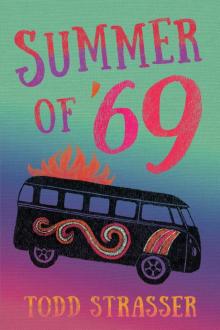 Summer of '69
Summer of '69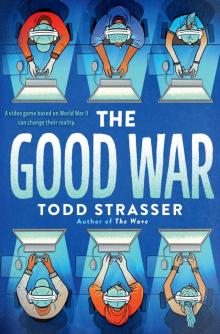 The Good War
The Good War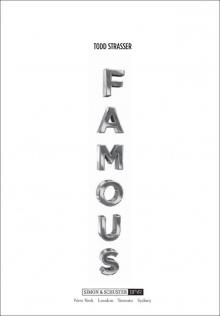 Famous
Famous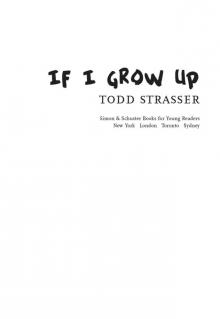 If I Grow Up
If I Grow Up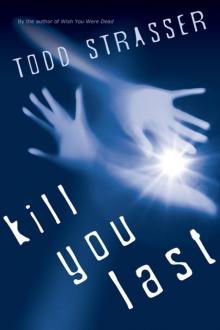 Kill You Last
Kill You Last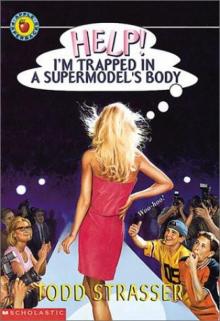 Help! I'm Trapped in a Supermodel's Body
Help! I'm Trapped in a Supermodel's Body Price of Duty
Price of Duty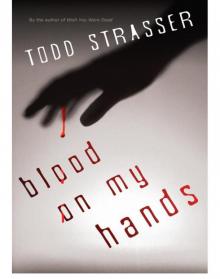 Blood on My Hands
Blood on My Hands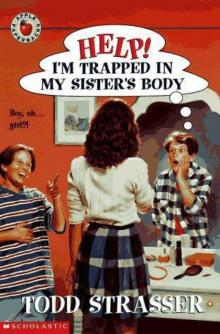 Help! I'm Trapped in My Sister's Body
Help! I'm Trapped in My Sister's Body sidewayz glory
sidewayz glory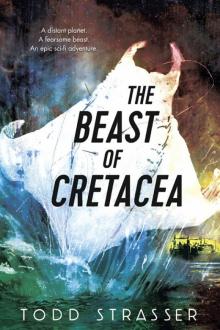 The Beast of Cretacea
The Beast of Cretacea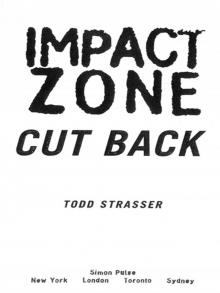 Cut Back
Cut Back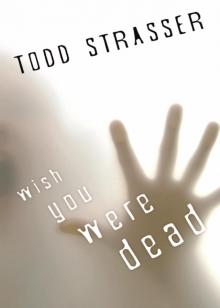 Wish You Were Dead
Wish You Were Dead The Wave
The Wave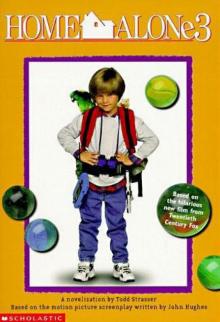 Home Alone 3
Home Alone 3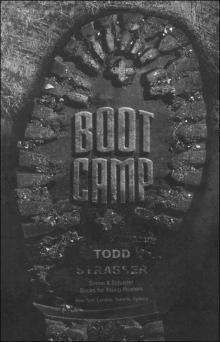 Boot Camp
Boot Camp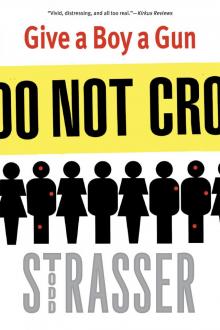 Give a Boy a Gun
Give a Boy a Gun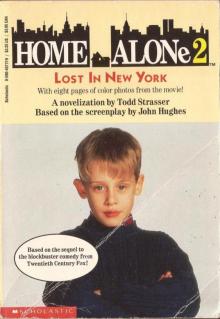 Home Alone 2
Home Alone 2 The Shore
The Shore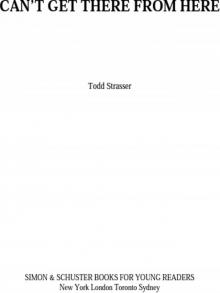 Can't Get There from Here
Can't Get There from Here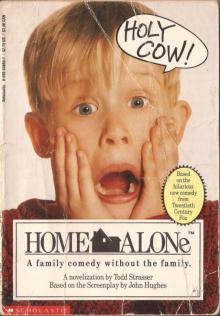 Home Alone
Home Alone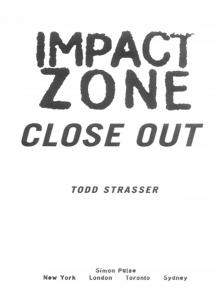 Close Out
Close Out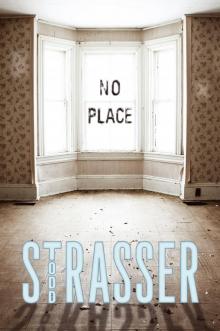 No Place
No Place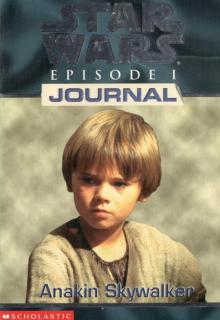 Star Wars - Episode I Journal - Anakin Skywalker
Star Wars - Episode I Journal - Anakin Skywalker